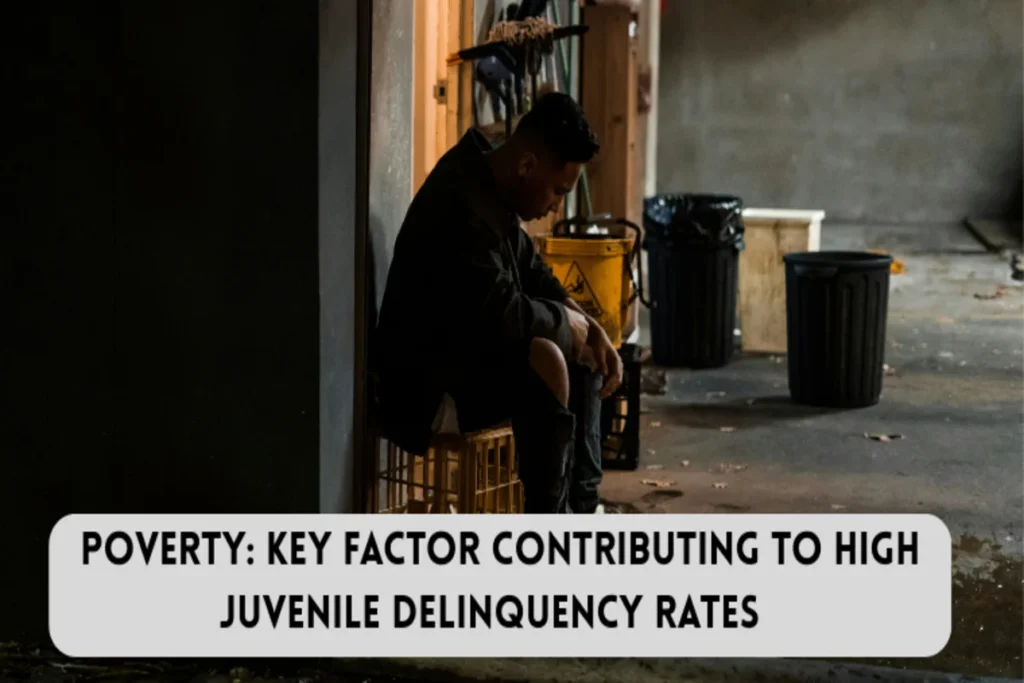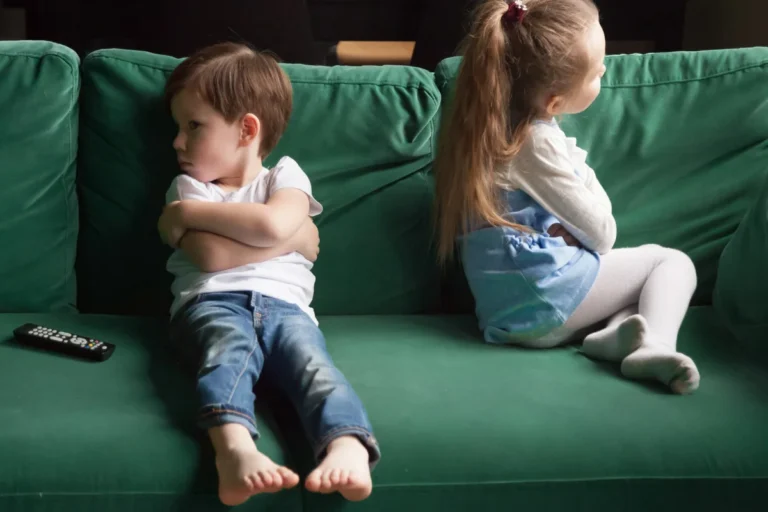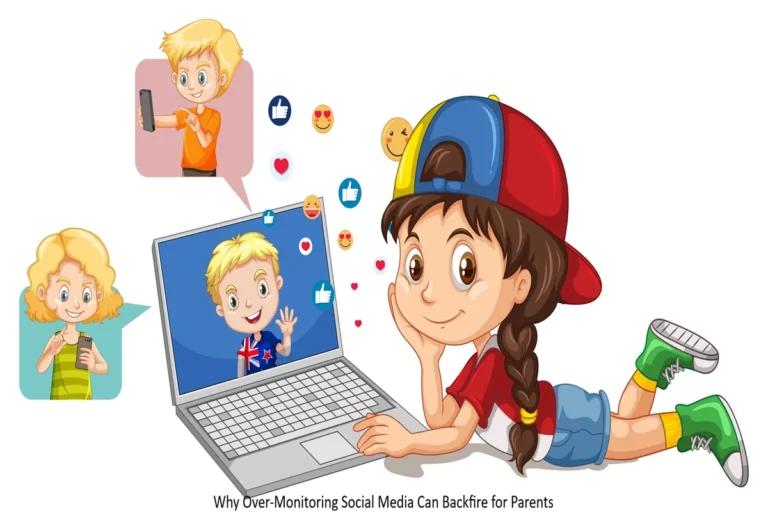
People often get very angry when they talk about young people breaking the law. News stories with headlines like “Teens in Court for Causing Trouble” or “More Gang Violence” make everyone upset. Most people blame the parents, say the kids need more discipline, or just call them “bad kids.” But this way of thinking misses the bigger, harder truth about poverty and juvenile delinquency. The biggest reason a young person gets in trouble with the law usually isn’t because they are a bad person — it’s because of their situation and a lack of money.
That reason is poverty. Being very poor puts huge, non-stop pressure on a family. This pressure often shows up in how the youngest family members act. To ignore that poverty is the main cause is to ignore the truth. This isn’t about making excuses for crime. It’s about understanding the real reason it happens. To truly fix the problem, we have to deal with the root cause.
Read about: Addressing Juvenile Delinquency:How Society and Parents Can Make a Difference
The Hard Truth of Poverty: It’s Not Just Having No Cash
“Poverty” sounds like just not having extra money. But in real life, it is a deep, constant state of worry that affects every part of life. It means always having to make hard and embarrassing choices to survive.
For a child, this life is the opposite of safe and stable. It can mean:
- Worrying about the lights going out: The fear that the pre-paid electricity meter will run out, leaving the home cold and dark, or that the gas will be shut off, meaning no hot dinner.
- Hearing parents worry: Overhearing parents argue quietly about money problems, like having to choose between buying a new school uniform or putting money on the heating.
- Feeling shame: Feeling embarrassed about free school meals, worried about a letter asking for money for a school trip, or ashamed of wearing old, second-hand clothes.
- Kids notice everything and feel this stress. This constant worry makes them feel like the world is unsafe and scary. From this shaky start, bad behavior can easily begin.
The Street’s Pull: Finding a Place to Fit In
Imagine a young person growing up in a small, crowded home. There is no quiet place to study or relax. There is definitely no money for after-school clubs, sports, or music lessons, the very things that keep kids busy and give them goals. This is how poverty and juvenile delinquency often become connected, as limited opportunities push children toward risky environments.
The only place left to go is the street. The local park, the mall, or the housing estate becomes their place. There, they find something very important: a group of friends. This group gives them a strong feeling of being accepted and understood. For a young person who feels judged by everyone else, the group says, “You belong with us. You are important.”
This feeling can start a slide into trouble. It often begins with small things:
- Causing minor trouble: Hanging around and then starting to damage property or steal small things. They might not do it alone, but do it with the group to feel brave.
- Wanting respect: Inside the group, they often have to prove they are loyal and tough, which leads to riskier and riskier behavior.
- The promise of easy money: For some, the draw is money. Being offered fast cash for a small “job” like holding a bag isn’t seen as starting a life of crime. It is seen as a quick fix for their money problems. It’s a way to get the things they can’t afford.
Also read: Juvenile Shoplifting Gangs: The Disturbing New Trend Fueled by Instagram
When School Makes Things Worse
School is supposed to give every kid an equal chance. But often, it just makes the problems of poverty clearer. A child coming from a stressful home isn’t ready to learn. They are probably hungry, tired, and worried. Their brain is still in “survival mode.” This shows in the classroom as:
- Not being able to focus
- Getting frustrated easily
- Acting out and behaving badly
Schools that are already too busy and have little money often can’t help with the real problem. The usual response is punishment: detentions or even suspensions.
For a kid from a stable home, a suspension is a punishment. For a kid from a poor home, it is a day off from a place where they feel stupid. It’s a day on the streets where they feel important. This cycle pushes them further away from school, making them believe they don’t belong there.
It’s Not Just Crime: It’s a Cry for Help
Young people breaking the law should not just be seen as crime. It should be seen as a sign of a deeper problem: hopelessness. It is a damaging cry for help, for attention, and for some control over their life.
- Vandalism: Breaking a window can be a way to show anger at a world that seems unfair. It is a way to be seen and to say, “I exist!”
- Fighting: Getting in a fight is often about demanding respect, because in their daily life, they feel disrespected by everyone.
These actions are wrong and hurt others. But understanding why they happen is the first step to stopping the cycle. Punishment without understanding is like putting a bandage on a broken bone. It covers the spot but doesn’t fix the break.
How to Stop the Cycle: Help, Don’t Ignore
The answers are clear. They need people in charge to care, to be kind, and to spend money on young people.
The main goal must be to fight child poverty. This means giving real financial help to families so no child is hungry or lives in a cold house. A stable home lets parents be better parents.
Communities also need more money for:
- Youth Clubs: Places like youth clubs, sports centers, and community groups with good staff are not a extra. They are essential. They give kids a safe place to go, positive role models, and fun things to do. They are a lifeline.
- Schools that Help More: Schools need to become places that support the whole child. This means:
- Having mental health help and counselors in the school.
- Having programs that build confidence and self-esteem.
- Training teachers to understand that bad behavior is often a sign of pain.
- Programs Instead of Prison: Investing in programs that fix the reason for the behavior is better than just sending kids to court. A criminal record makes it very hard to get a job or home later in life.
This way is not being soft; it is being smart. It is much cheaper for everyone to pay for a youth club and a mentor than to pay for a prison cell. It is better to offer help than to only give punishment.
Also Read: Juvenile Delinquency: Understanding Why Teens Commit Crimes
A Request for Understanding
In the end, this is a request for understanding. It is about looking past the scary headline and the hoodie to see the child inside. The “criminal” is often just a scared, stressed, and desperate young person who never had a real chance.
Poverty is not an excuse for crime but it is the biggest cause. It fuels poverty and juvenile delinquency by creating the hopelessness that leads to desperate acts. To build safer communities for everyone, we must first build communities where every young person has hope. We must give them a real reason to believe that their future can be bright and then help them get there.
FAQs
Poverty increases stress, limits opportunities, and reduces access to education and safe environments, which raises the risk of delinquent behavior in young people.
Key risk factors include poor schooling, unstable housing, lack of supervision, exposure to violence, and limited community resources.
Yes. Better schooling, after-school programs, mentorship, and safe community spaces help reduce crime by giving young people structure and positive guidance.
Effective solutions include job training, financial support for families, mental-health services, and strong community programs that offer stable alternatives to risky behavior.
Parents can help by giving consistent guidance, staying involved in school activities, setting clear rules, and seeking community support or counseling when needed.
Limited access to good teachers, safe schools, and learning resources lowers academic success and increases the chances of teens turning toward delinquent behavior.
After-school programs, mentorship groups, vocational training, and neighborhood safety initiatives are proven to lower juvenile crime rates in poor communities.


